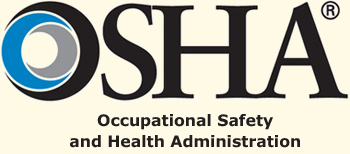OSHA (Occupational Safety and Health Administration) that focuses on ensuring safe and healthy working conditions for workers has revised its recordkeeping rules that are effective from January 1, 2015. There are two important changes in the rules.
- Employers with 10 or fewer employees are exempted from routinely maintaining records, irrespective of their industrial classification
- The list of employers that must report to OSHA in relation to severe work related injuries has been increased.
The federal organization will be targeting industries such as chemical/product manufacturing plants, funeral homes, hospital and rental care facilities, grain handlers, refineries and retail where workers are exposed to OSHA regulated chemicals. The final rule is significant in that it will enable the organization to focus on preventing work related injuries/fatalities or illness during work. Here are the main updates.
- Earlier, employers were required to report about the work related injury/incident when three or more employees were involved. Now, however the new rule takes care of every employee working in hazardous industries. It also ensures that the required health standards are maintained in such settings.
- From January 1, 2015 employers have to report all work related fatalities within 8 hours. All inpatient hospitalizations, amputations and loss of eye have to be reported within 24 hours.
- The report can be made by making a call to their nearest OSHA area office within business hours, calling their toll free number or reporting online.
Detailed information regarding Recordkeeping Rules.
Workers’ compensation claims are paid on the basis of a comprehensive medical record review to establish the workplace injury. When an employer makes a report to OSHA regarding the injury, it will help workers’ compensation lawyers to establish that the injury/occupational illness was caused by specific conditions present at the workplace. Sometimes employers do not complete injury reports mainly due to fear that it may be used against them in future legal proceedings, or because they want to deny that such an event took place. However, it is risky not to report the injury because if an employer is aware of should have been aware of an event that led to an illness or injury, and failed to report this to OSHA, it will act as powerful evidence for the plaintiff’s attorney to prove that the employer tried to cover up the incident. Injured workers must also see to it that the incident is documented immediately; if they are unable to do so, the best option is to contact a workers’ compensation lawyer who will help to safeguard all evidence to secure maximum compensation for the harm caused by a workplace injury.



